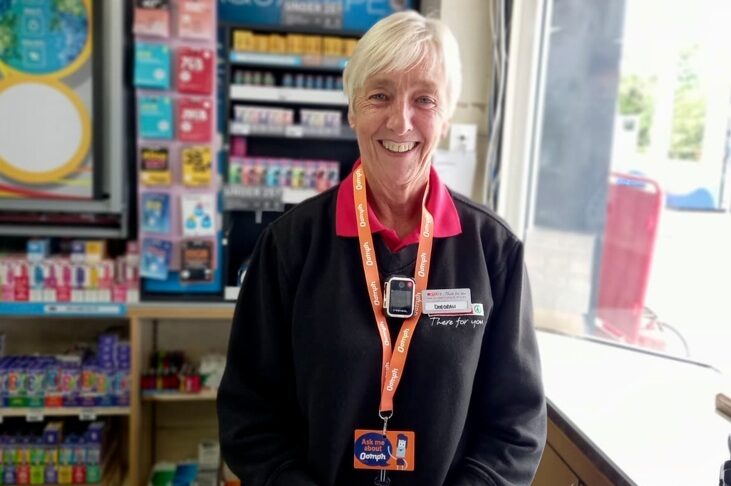Retail workers in the UK are facing an unprecedented rise in violence, abuse and theft, forcing employers to take new measures to safeguard staff. With incidents of aggression becoming a daily reality for many on the shop floor, a growing number of retailers are turning to body-worn cameras as a deterrent and a tool for protection.
The move reflects mounting concern across the sector. From verbal threats and antisocial behaviour to physical assaults and organised shoplifting, the high street is becoming an increasingly hostile environment for those who work there.
Against this backdrop, bodycams are being introduced not only to help prevent incidents but also to support staff wellbeing, rebuild confidence and provide vital evidence when things go wrong.
Abuse and Theft at Record Levels
The British Retail Consortium estimates that UK retailers lost £2.2 billion to shoplifting in 2023–24, with over 20 million incidents recorded. Meanwhile, frontline staff are enduring more than 2,000 incidents of violence or abuse every single day, including threats with weapons, according to industry data.
In its most recent Crime Survey, the Association of Convenience Stores reported that 87% of retail workers had experienced verbal abuse in the past year. The same report documented a marked increase in violent incidents, many of which stem from attempted thefts, refusal to serve intoxicated customers or the enforcement of age restrictions on products.
These findings echo feedback from major retailers and trade unions, which have consistently warned that the situation is becoming unsustainable, and dangerous.
Staff Say Bodycams Improve Safety
One forecourt operator, independent fuel and lubricants distributor Certas Energy, recently rolled out body-worn cameras at 40 of its UK sites following a successful trial. The £50,000 investment included nearly 100 cameras and accompanying software to manage the footage securely.
“We want our staff to feel safe and be treated with respect. Abuse should not be part of their working day,” said Mark Harrington, Certas Energy Area Manager for the North East. “We’ve found that simply the presence of the cameras – clipped to staff’s polo shirts or jackets – has been a huge deterrent against antisocial behaviour and has gone a long way toward making staff feel safer.”
He added that the cameras had “helped my teams feel they aren’t powerless against antisocial behaviour and that there are steps they can safely take to help tackle it”.
One employee who took part in a trial and wished to remain anonymous said the change in customer behaviour was immediate.
“During the period with the body cams, the way people talk and interact with me and my colleagues has improved and customers are more polite,” the staffer said. “I believe that it also helps to reduce violence against us and makes thieves think twice.”
Part of a Broader Response
The retail sector is not alone in turning to bodycams. High street names including Boots and Poundland have also introduced the technology across hundreds of stores. Early data suggests the cameras are having a measurable impact, from reducing incidents of aggression to improving staff retention.
Security experts say the visibility of the cameras can help de-escalate tense situations, while the footage provides vital evidence in the event of disputes or legal action. For many employers, the cameras are part of a wider strategy that also includes conflict management training, clear reporting procedures and stronger collaboration with police.
Industry observers warn, however, that technology alone is not the answer. Cameras must be supported by robust policies to ensure they’re used appropriately, with clear guidance on privacy, data protection and consent.
Policy and Public Backing
There are signs of growing support from policymakers. The government’s Retail Crime Action Plan includes a pledge to treat assaults on shop workers as a standalone offence, while some police forces have begun funding bodycams for independent retailers as part of community safety schemes.
In parallel, initiatives like the Pegasus Partnership are helping businesses and law enforcement share intelligence to crack down on repeat offenders and organised retail crime.
Retail groups continue to call for greater consistency in police response and sentencing, arguing that the law must keep pace with the scale and severity of the problem.
A Turning Point for Retail Wellbeing
The rollout of body-worn cameras marks an important shift in how retail employers are thinking about staff safety and wellbeing, say workplace experts. It signals a move away from reactive responses towards proactive protection, and recognises that abuse, in any form, should never be accepted as part of the job.
As retailers face increasing pressure to support their workforce, bodycams may prove a vital part of the solution. But real change will depend on a joined-up approach that includes technology, training, enforcement and a cultural commitment to respect those who serve on the front line of the high street.


